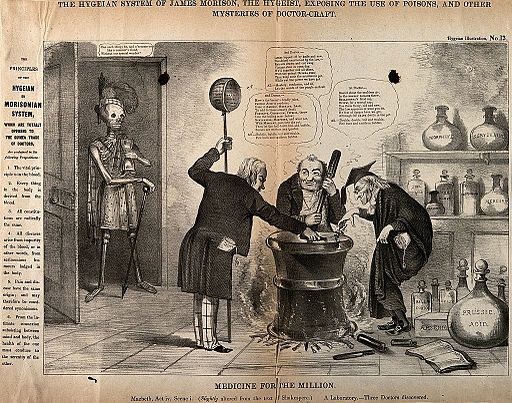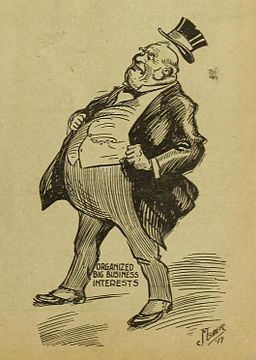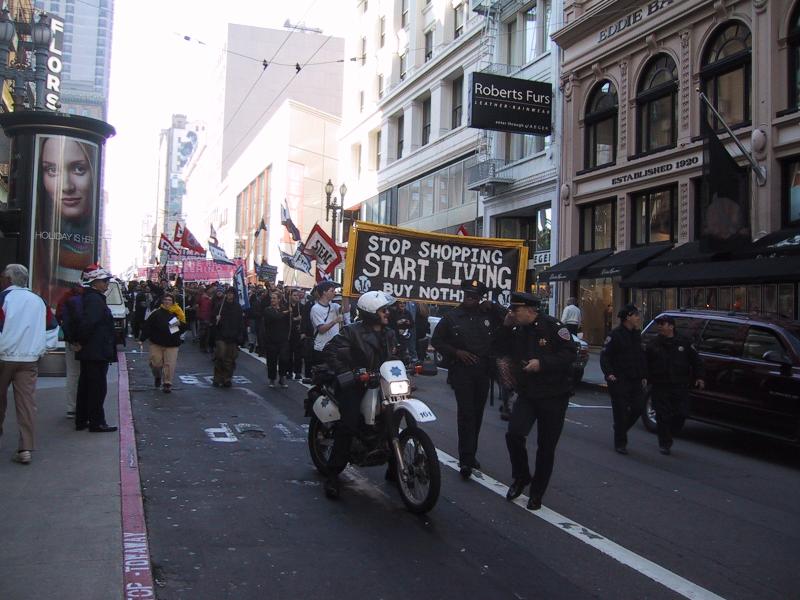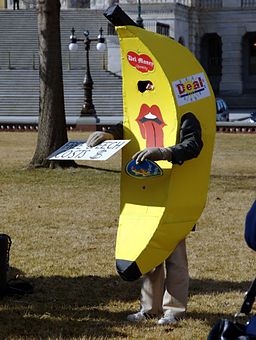The Price Is Right for Somebody
— Genesis 4:9, from the King James Version of the Bible.
Imagine a television game show in which the announcer calls four contestants from the studio audience to the foot of the stage, a stage that is a mock up of a pharmacy, with a counter behind which stands the host, looking like a pharmacist in a white smock. The host directs everyone’s attention to one side of the stage, where an assistant – also in a white smock – presents a year’s worth of a popular prescription drug, let’s say insulin. The host then asks the four contestants to guess the price of the insulin without going over the amount, and the contestant with the closest guess gets to come up on stage for the opportunity to win prizes.

A lithograph promoting James Morison’s alternative medicines, showing a skeletal figure surveying three doctors around a cauldron in a parody of Macbeth and the three witches. From the Wellcome Collection gallery, London, England.
“Someday Never Comes”, by Creedence Clearwater Revival from their 1972 album Mardi Gras.
Who are the people responsible for putting those cretins in Congress and in positions where they can run cover for the drug companies? Why, they are in large part the same people who struggle to buy overpriced prescription drugs. Why do they do this to themselves? Ah, that is the question bedeviling America’s sickness today. The unfortunate part is that while some voters are caught up in Congressional posturing and not paying attention to substance, there are many voters who don’t share their ignorant love of machismo and capitalist lotteries and yet are forced to share the results of the bad policies ensuing from all that greed and childishness. They have to scramble for the scraps left over from the game, while a few wealthy grifters laugh at how they have duped enough voters to go along with their rigged game to keep it going, dangling prizes before the willing saps. Instead of gambling on a rigged capitalist lottery, sensible adults take measures, even – horrors! – socialist measures, to ensure decent results everyday for everybody when it comes to matters of survival like food, shelter, education, and medical care, including drugs.
— Ed. 




